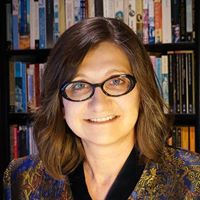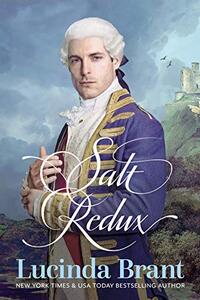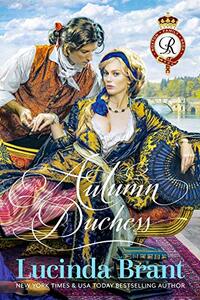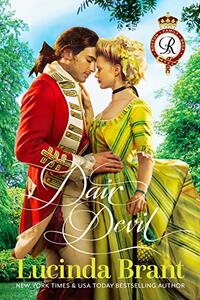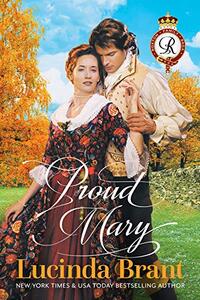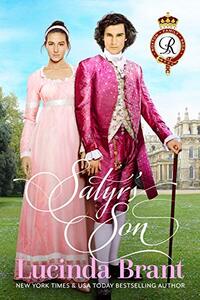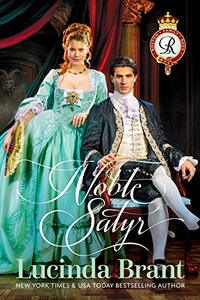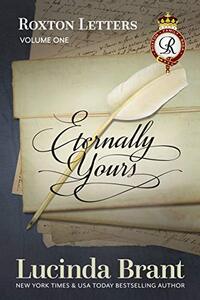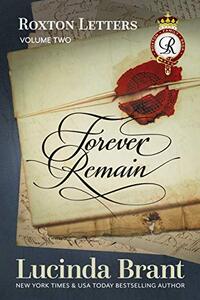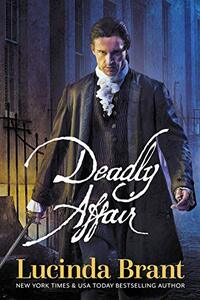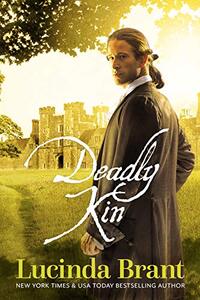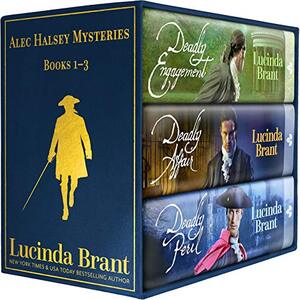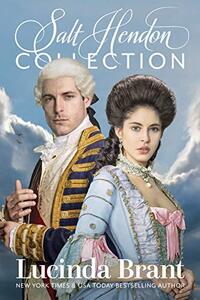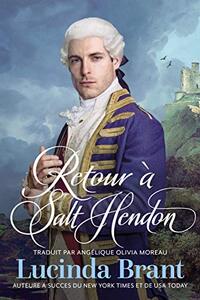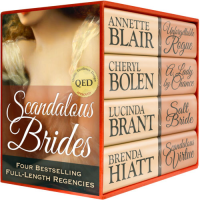Lucinda Brant Interview Published on: 10, Jul 2023
 Where did you grow up? Do you think your upbringing has played any role in influencing your writing?
Where did you grow up? Do you think your upbringing has played any role in influencing your writing?
I grew up on the outskirts of Sydney, NSW, Australia. The town is now a suburb, but back then it was dirt roads and dairy farms. Weekends were spent roaming the countryside with my cousins on our bikes. We rarely came home until dusk. We also didn’t have a television, a phone, or a car until I was well into my teens. But I had books and access to a great public library! So plenty of time to dream and read about exotic locales. My mother came from a very large family, so there were lots of cousins, aunts and uncles, and consequently loads of family drama, which was all fuel for a young writer’s imagination!
At what age did you decide to write your own book?I wrote my first novel in my teens. I would take each new chapter to Math class and hand it out for feedback. Can you tell I wasn’t a great math student? LOL
Do you ever base your characters on people you know in real life?Not entire characters, but certain aspects of a personality or physical characteristics which I’ll borrow. I’ve come close to basing an entire character on a good friend of mine from Uni days, though I won’t tell you which one in case he happens to read this!
What challenges have you faced in your writing career, and how have you overcome them?Being an indie-published author had its fair share of challenges in the beginning. Indies weren’t taken seriously by many in the traditional publishing industry—eBooks were thought to be a passing fad. When I tried to enter my books in competitions, often I would be rejected because I was an Indie. How times have changed! Those same organisations now embrace indie authors. Which is great! I guess Indies being able to give up the day job and earn a living at writing as well as getting on the bestseller lists helped to change all that.
How do you handle writer's block or creative stagnation?For me it’s more a case of having the time to write everything down. I don’t write fast enough for my readers! And I have several novels on the backburner, so plenty to get on with!
Can you talk about the research you did for your book, Noble Satyr: Roxton Family Saga Prequel, which is also the first book in the Roxton Foundation Series?I have a substantial library of non-fiction books on the 18th Century, collected over a forty-year period. So, most of my research for Noble Satyr came from delving into my own library. As it is set in the 1740s in France and England, I read many contemporary journals and diaries, newspapers, and loads of books on Louis XV, the court of Versailles, and the Georgian court of George the Second. Since it’s publication I’ve travelled many times to London and Paris, and Versailles, and it’s wonderful to walk the halls, gardens, and rooms that my characters do!
How has your writing style or approach evolved over the course of your career?I don’t know if my style has changed all that much. I still take three steps forward and then two back, meaning I compose and edit as I go. My approach certainly has, as I used to write my novels on paper using a HB pencil. I still write all my research notes by hand, but I now create the stories on computer.
How do you develop and flesh out your characters?I construct detailed biographies and family trees, and try to know everything about a character and their family before I begin writing. But first I need to know their name—first, middle and last, and their titles (if they are ennobled) before I do anything else. I can’t move forward without a name!
Which character was the most difficult for you to write, and why in the "Alec Halsey Mysteries" series?Oh, the main character of Alec Halsey! He had to be intelligent, but also have a high EQ (emotional intelligence), be swoon-worthily handsome, flawed but likeable, have an interesting backstory, a turbulent love life, and be a bit of an outsider. Someone I would find interesting enough to cheer on throughout an entire series. A very tall order. But my readers have really embraced him, which is lovely.
Do you think it's important for readers to be able to relate to your characters, even if they are vastly different from them?Of course. If I can’t relate to them on some level, I can’t write about them, so I’m sure it’s the same for my readers.
What advice would you give to aspiring writers who want to achieve similar success as you?Never give up! Never surrender (to quote from a favorite movie Galaxy Quest). I write because I love it, and I love to read. And I love my characters, and I love the 18th Century. So find what you love to write about, and keep at it. There has never been a better time to be published. Gone are the gatekeepers and naysayers. You can be a published author. eBooks and indie publishing have made that happen. Whether you are successful at it will depend on so many other factors, but I truly believe if you love what you write, readers will find you and embrace your stories.
How do you stay motivated and continue to write even when you face rejection or setbacks?I write every day. I keep active in mind and body. I take time away from the computer. It’s all about life-balance. If I encounter rejection or setbacks, in whatever form, I merely pick myself up and get on with it. Life is too short to navel gaze the negativity!
Can you give us a sneak peek into any upcoming projects or books you're working on?I’m busy writing the fifth Alec Halsey mystery. Then I have a three-book contract with Dragonblade Publishing, to write an historical romance series about a family of unruly unconventional sisters. I then have three more books to write in my Roxton Foundation Series. And after that it will be full gallop into a new series about the younger generation of Roxtons. So plenty to get on with!
What are your thoughts on AllAuthor and its services? Do you have any feedback?AllAuthor is a great site for seasoned as well as new authors to showcase their books, and to utilize its services. I particularly love the weekly generated mock up book banners, which I use on Twitter, Facebook, and Pinterest. Thanks! And thank you for hosting me.
Lucinda Brant is a prolific and acclaimed author who has captured the hearts of readers worldwide. As a New York Times, USA Today, Amazon, and Audible bestselling author, her works have delighted fans with captivating tales of love, mystery, and adventure. She shares her unique space with a mad scientist, a mad Iggy, and not one, but two coffee machines — an essential fuel for her creative process.
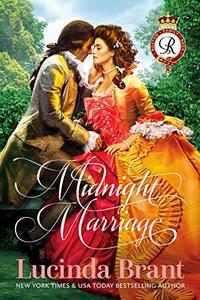 Midnight Marriage: A Georgian Historical Romance (Roxton Family Saga Book 1)
Genre: Historical Romance
Midnight Marriage: A Georgian Historical Romance (Roxton Family Saga Book 1)
Genre: Historical Romance
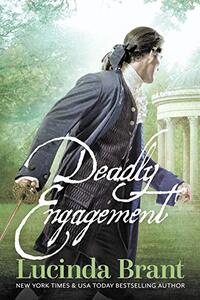 Deadly Engagement: A Georgian Historical Mystery (Alec Halsey Mystery Book 1)
Genre: Historical Mystery
Deadly Engagement: A Georgian Historical Mystery (Alec Halsey Mystery Book 1)
Genre: Historical Mystery
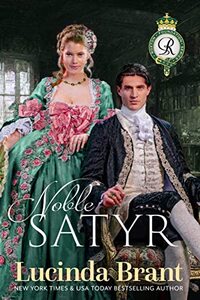 Noble Satyr: A Georgian Historical Romance (Roxton Foundation Series Book 1)
Genre: Historical Romance
Noble Satyr: A Georgian Historical Romance (Roxton Foundation Series Book 1)
Genre: Historical Romance
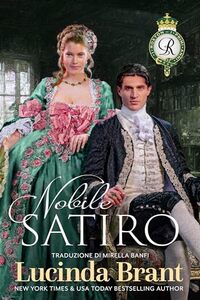 Nobile Satiro: Un Romanzo Storico Georgiano (I Roxton, i primi anni Vol. 1) (Italian Edition)
Genre: Historical Romance
Nobile Satiro: Un Romanzo Storico Georgiano (I Roxton, i primi anni Vol. 1) (Italian Edition)
Genre: Historical Romance
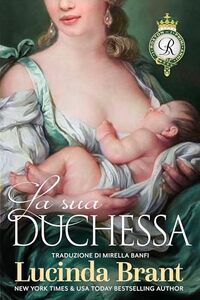 La sua duchessa: Sequel di Nobile Satiro (I Roxton, i primi anni Vol. 2) (Italian Edition)
Genre: Historical Romance
La sua duchessa: Sequel di Nobile Satiro (I Roxton, i primi anni Vol. 2) (Italian Edition)
Genre: Historical Romance
 Il suo duca: Sequel di La sua Duchessa (I Roxton, i primi anni Vol. 3) (Italian Edition)
Genre: Historical Romance
Il suo duca: Sequel di La sua Duchessa (I Roxton, i primi anni Vol. 3) (Italian Edition)
Genre: Historical Romance
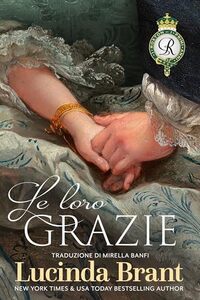 Le loro grazie: Sequel di Il suo Duca (I Roxton, i primi anni Vol. 4) (Italian Edition)
Genre: Historical Romance
Le loro grazie: Sequel di Il suo Duca (I Roxton, i primi anni Vol. 4) (Italian Edition)
Genre: Historical Romance
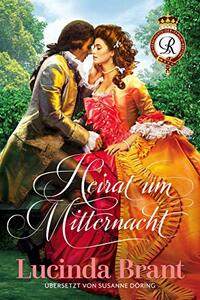 Heirat um Mitternacht: Ein Liebesroman aus dem 18. Jahrhundert (Die Geschichte der Familie Roxton 1) (German Edition)
Genre: Historical Romance
Heirat um Mitternacht: Ein Liebesroman aus dem 18. Jahrhundert (Die Geschichte der Familie Roxton 1) (German Edition)
Genre: Historical Romance
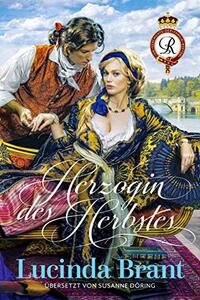 Herzogin des Herbstes: Ein Liebesroman aus dem 18. Jahrhundert (Die Geschichte der Familie Roxton 2) (German Edition)
Genre: Historical Romance
Herzogin des Herbstes: Ein Liebesroman aus dem 18. Jahrhundert (Die Geschichte der Familie Roxton 2) (German Edition)
Genre: Historical Romance
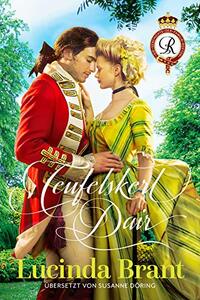 Teufelskerl Dair: Ein Liebesroman aus dem 18. Jahrhundert (Die Geschichte der Familie Roxton 3) (German Edition)
Genre: Historical Romance
Teufelskerl Dair: Ein Liebesroman aus dem 18. Jahrhundert (Die Geschichte der Familie Roxton 3) (German Edition)
Genre: Historical Romance
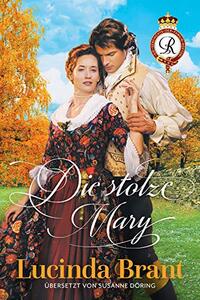 Die stolze Mary: Ein Liebesroman aus dem 18. Jahrhundert (Die Geschichte der Familie Roxton 4) (German Edition)
Genre: Historical Romance
Die stolze Mary: Ein Liebesroman aus dem 18. Jahrhundert (Die Geschichte der Familie Roxton 4) (German Edition)
Genre: Historical Romance
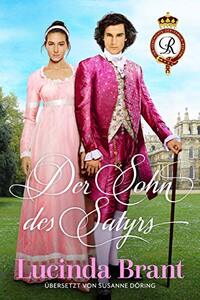 Der Sohn des Satyrs: Ein Liebesroman aus dem 18. Jahrhundert (Die Geschichte der Familie Roxton 5) (German Edition)
Genre: Historical Romance
Der Sohn des Satyrs: Ein Liebesroman aus dem 18. Jahrhundert (Die Geschichte der Familie Roxton 5) (German Edition)
Genre: Historical Romance
 Die Braut von Salt Hendon: Historischer Roman aus der Georgianischen Ära (Salt Hendon Reihe 1) (German Edition)
Genre: Historical Romance
Die Braut von Salt Hendon: Historischer Roman aus der Georgianischen Ära (Salt Hendon Reihe 1) (German Edition)
Genre: Historical Romance
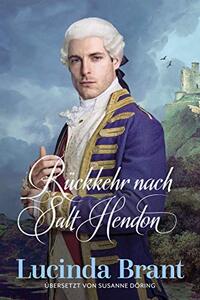 Rückkehr nach Salt Hendon: Fortsetzung von „Die Braut von Salt Hendon“ (Salt Hendon Reihe 2) (German Edition)
Genre: Historical Romance
Rückkehr nach Salt Hendon: Fortsetzung von „Die Braut von Salt Hendon“ (Salt Hendon Reihe 2) (German Edition)
Genre: Historical Romance
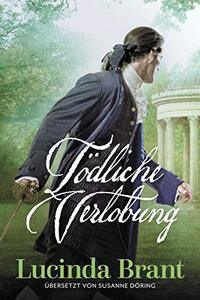 Tödliche Verlobung: Ein Historischer Kriminalroman aus der Georgianischen Zeit (Alec-Halsey-Krimis 1) (German Edition)
Genre: Historical Mystery
Tödliche Verlobung: Ein Historischer Kriminalroman aus der Georgianischen Zeit (Alec-Halsey-Krimis 1) (German Edition)
Genre: Historical Mystery
 Tödliche Affäre: Ein Historischer Kriminalroman aus der Georgianischen Zeit (Alec-Halsey-Krimis 2) (German Edition)
Genre: Historical Mystery
Tödliche Affäre: Ein Historischer Kriminalroman aus der Georgianischen Zeit (Alec-Halsey-Krimis 2) (German Edition)
Genre: Historical Mystery
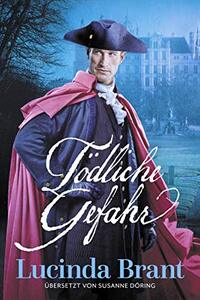 Tödliche Gefahr: Ein Historischer Kriminalroman aus der Georgianischen Zeit (Alec-Halsey-Krimis 3) (German Edition)
Genre: Historical Mystery
Tödliche Gefahr: Ein Historischer Kriminalroman aus der Georgianischen Zeit (Alec-Halsey-Krimis 3) (German Edition)
Genre: Historical Mystery
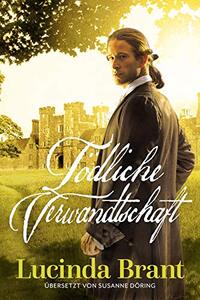 Tödliche Verwandtschaft: Ein Historischer Kriminalroman aus der Georgianischen Zeit (Alec-Halsey-Krimis 4) (German Edition)
Genre: Historical Mystery
Tödliche Verwandtschaft: Ein Historischer Kriminalroman aus der Georgianischen Zeit (Alec-Halsey-Krimis 4) (German Edition)
Genre: Historical Mystery
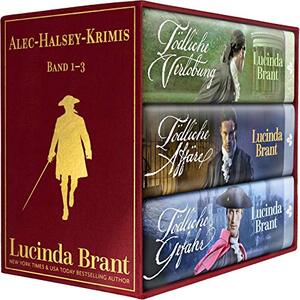 Alec-Halsey-Krimis Band 1 - 3: Ein Historischer Kriminalroman aus der Georgianischen Zeit (German Edition)
Genre: Historical Mystery
Alec-Halsey-Krimis Band 1 - 3: Ein Historischer Kriminalroman aus der Georgianischen Zeit (German Edition)
Genre: Historical Mystery
 L’Épouse de Salt: Une Romance Historique Georgienne (Salt Hendon t. 1) (French Edition)
Genre: Historical Romance
L’Épouse de Salt: Une Romance Historique Georgienne (Salt Hendon t. 1) (French Edition)
Genre: Historical Romance
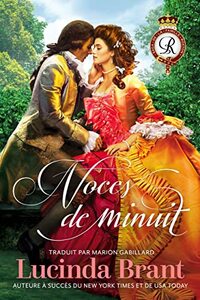 Noces de minuit: Une Romance Historique Georgienne (Saga de la famille Roxton t. 1) (French Edition)
Genre: Historical Romance
Noces de minuit: Une Romance Historique Georgienne (Saga de la famille Roxton t. 1) (French Edition)
Genre: Historical Romance
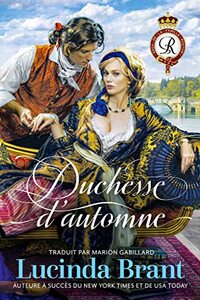 Duchesse d’automne: Une Romance Historique Georgienne (Saga de la famille Roxton t. 2) (French Edition)
Genre: Historical Romance
Duchesse d’automne: Une Romance Historique Georgienne (Saga de la famille Roxton t. 2) (French Edition)
Genre: Historical Romance
 Dair le Diabolique: Une Romance Historique Georgienne (Saga de la famille Roxton t. 3) (French Edition)
Genre: Historical Romance
Dair le Diabolique: Une Romance Historique Georgienne (Saga de la famille Roxton t. 3) (French Edition)
Genre: Historical Romance
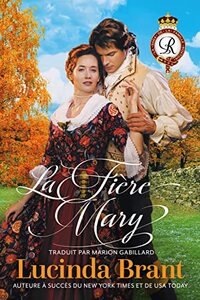 La Fière Mary: Une Romance Historique Georgienne (Saga de la famille Roxton t. 4) (French Edition)
Genre: Historical Romance
La Fière Mary: Une Romance Historique Georgienne (Saga de la famille Roxton t. 4) (French Edition)
Genre: Historical Romance
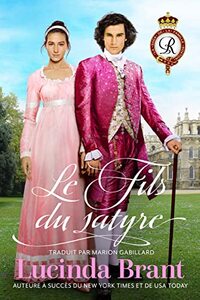 Le Fils du satyre: Une Romance Historique Georgienne (Saga de la famille Roxton t. 5) (French Edition)
Genre: Historical Romance
Le Fils du satyre: Une Romance Historique Georgienne (Saga de la famille Roxton t. 5) (French Edition)
Genre: Historical Romance
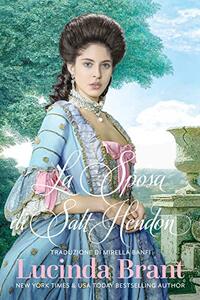 La Sposa di Salt Hendon: Un Romanzo Storico Georgiano (Serie Salt Hendon Vol. 1) (Italian Edition)
Genre: Historical Romance
La Sposa di Salt Hendon: Un Romanzo Storico Georgiano (Serie Salt Hendon Vol. 1) (Italian Edition)
Genre: Historical Romance
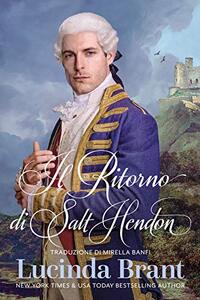 Il Ritorno di Salt Hendon: Il seguito di La Sposa di Salt Hendon (Serie Salt Hendon Vol. 2) (Italian Edition)
Genre: Historical Romance
Il Ritorno di Salt Hendon: Il seguito di La Sposa di Salt Hendon (Serie Salt Hendon Vol. 2) (Italian Edition)
Genre: Historical Romance
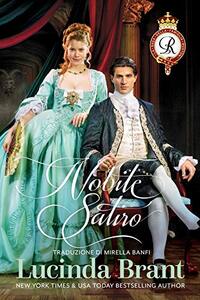 Nobile Satiro: Un Romanzo Storico Georgiano (La Saga Della Famiglia Roxton Vol. 8) (Italian Edition)
Genre: Historical Romance
Nobile Satiro: Un Romanzo Storico Georgiano (La Saga Della Famiglia Roxton Vol. 8) (Italian Edition)
Genre: Historical Romance
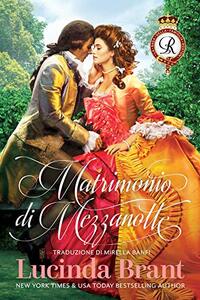 Matrimonio di Mezzanotte: Un Romanzo Storico Georgiano (La Saga Della Famiglia Roxton Vol. 1) (Italian Edition)
Genre: Historical Romance
Matrimonio di Mezzanotte: Un Romanzo Storico Georgiano (La Saga Della Famiglia Roxton Vol. 1) (Italian Edition)
Genre: Historical Romance
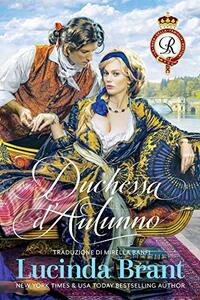 Duchessa d’Autunno: Un Romanzo Storico Georgiano (La Saga Della Famiglia Roxton Vol. 2) (Italian Edition)
Genre: Historical Romance
Duchessa d’Autunno: Un Romanzo Storico Georgiano (La Saga Della Famiglia Roxton Vol. 2) (Italian Edition)
Genre: Historical Romance
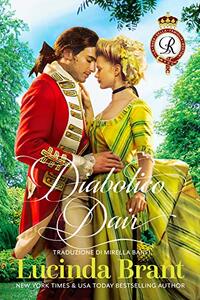 Diabolico Dair: Un Romanzo Storico Georgiano (La Saga Della Famiglia Roxton Vol. 3) (Italian Edition)
Genre: Historical Romance
Diabolico Dair: Un Romanzo Storico Georgiano (La Saga Della Famiglia Roxton Vol. 3) (Italian Edition)
Genre: Historical Romance
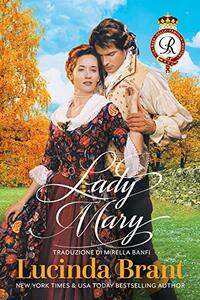 Lady Mary: Un Romanzo Storico Georgiano (La Saga Della Famiglia Roxton Vol. 4) (Italian Edition)
Genre: Historical Romance
Lady Mary: Un Romanzo Storico Georgiano (La Saga Della Famiglia Roxton Vol. 4) (Italian Edition)
Genre: Historical Romance
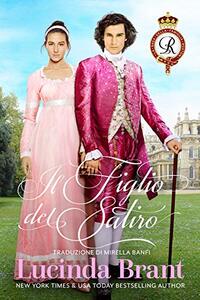 Il Figlio del Satiro: Un Romanzo Storico Georgiano (La Saga Della Famiglia Roxton Vol. 5) (Italian Edition)
Genre: Historical Romance
Il Figlio del Satiro: Un Romanzo Storico Georgiano (La Saga Della Famiglia Roxton Vol. 5) (Italian Edition)
Genre: Historical Romance
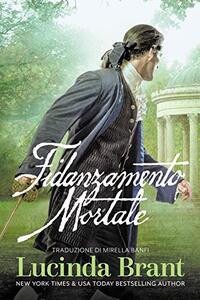 Fidanzamento Mortale: Un Giallo Storico Georgiano (I Gialli di Alec Halsey Vol. 1) (Italian Edition)
Genre: Historical Mystery
Fidanzamento Mortale: Un Giallo Storico Georgiano (I Gialli di Alec Halsey Vol. 1) (Italian Edition)
Genre: Historical Mystery
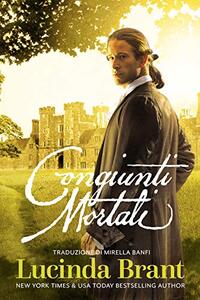 Congiunti Mortali : Un Giallo Storico Georgiano (I Gialli di Alec Halsey Vol. 4) (Italian Edition)
Genre: Historical Mystery
Congiunti Mortali : Un Giallo Storico Georgiano (I Gialli di Alec Halsey Vol. 4) (Italian Edition)
Genre: Historical Mystery
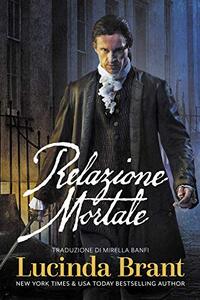 Relazione Mortale: Un Giallo Storico Georgiano (I Gialli di Alec Halsey Vol. 2) (Italian Edition)
Genre: Historical Mystery
Relazione Mortale: Un Giallo Storico Georgiano (I Gialli di Alec Halsey Vol. 2) (Italian Edition)
Genre: Historical Mystery
 Pericolo Mortale: Un Giallo Storico Georgiano (I Gialli di Alec Halsey Vol. 3) (Italian Edition)
Genre: Historical Mystery
Pericolo Mortale: Un Giallo Storico Georgiano (I Gialli di Alec Halsey Vol. 3) (Italian Edition)
Genre: Historical Mystery
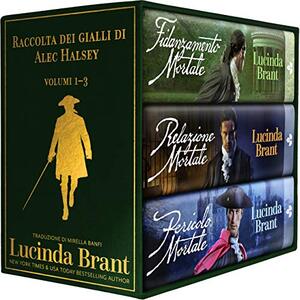 Raccolta dei gialli di Alec Halsey Volumi 1–3: Un Giallo Storico Georgiano (Italian Edition)
Genre: Historical Mystery
Raccolta dei gialli di Alec Halsey Volumi 1–3: Un Giallo Storico Georgiano (Italian Edition)
Genre: Historical Mystery
